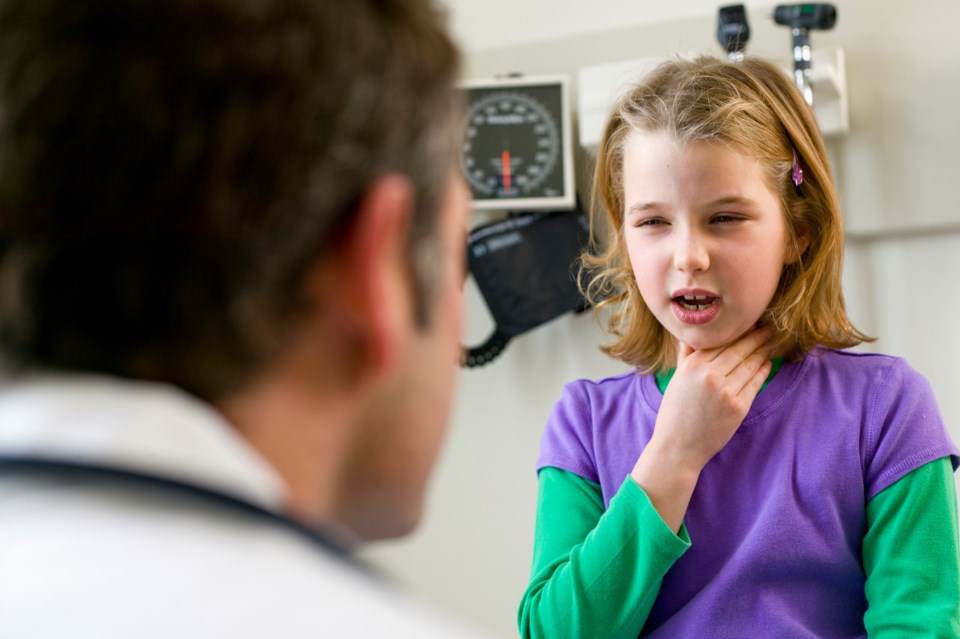The BC Centre for Disease Control is advising parents to be on alert for invasive group A streptococcal (iGAS) infections in their children as detected cases have surged this season.
The dangerous bacterial infection remains relatively rare but the BCCDC says there have been 51 recorded cases people under 20 years old this season, a more than 150 per cent increase from the 20 recorded last year.
Cases are also up significantly across the population, climbing to 10.1 cases per 100,000 people from 6.2 per 100,000 in 2016.
The centre noted in a Dec. 22 public statement that iGAS infections can “sometimes develop after a viral respiratory illness.” Parents of children who have been recently ill should monitor for one or more signs of severe infections, including: a fever for more than five days; swollen tongue; body rash; breathing difficulties; fatigue/sleepiness; and being overcome with illness very quickly.
“If a child is experiencing these symptoms, seek medical care right away by visiting your nearest emergency department or urgent and primary care centre, if available in your community,” states the BCCDC.
Strep A infections typically cause mild illnesses such as strep throat or skin rashes and most people recover with antibiotics.
However, when the infection becomes invasive (and becomes iGAS), it can cause life-threatening pneumonia, sepsis, toxic shock syndrome and necrotizing fasciitis, also known as flesh-eating disease.
Serious infections also pose an acute threat to medically vulnerable people such as those afflicted with cancer, diabetes, and chronic heart or lung disease. Such infections are also particularly dangerous for those who use medications such as steroids, the centre added.
In some cases, antibiotics are recommended for people living in the same household as someone with an iGAS infection.
The centre advises the following to defend against infections:
- Clean hands regularly;
- Clean wounds and watch for signs of infection;
- Stay up to date on your immunizations, including getting the updated COVID-19 and flu vaccines;
- And stay home when sick to prevent the further spread of illness.



